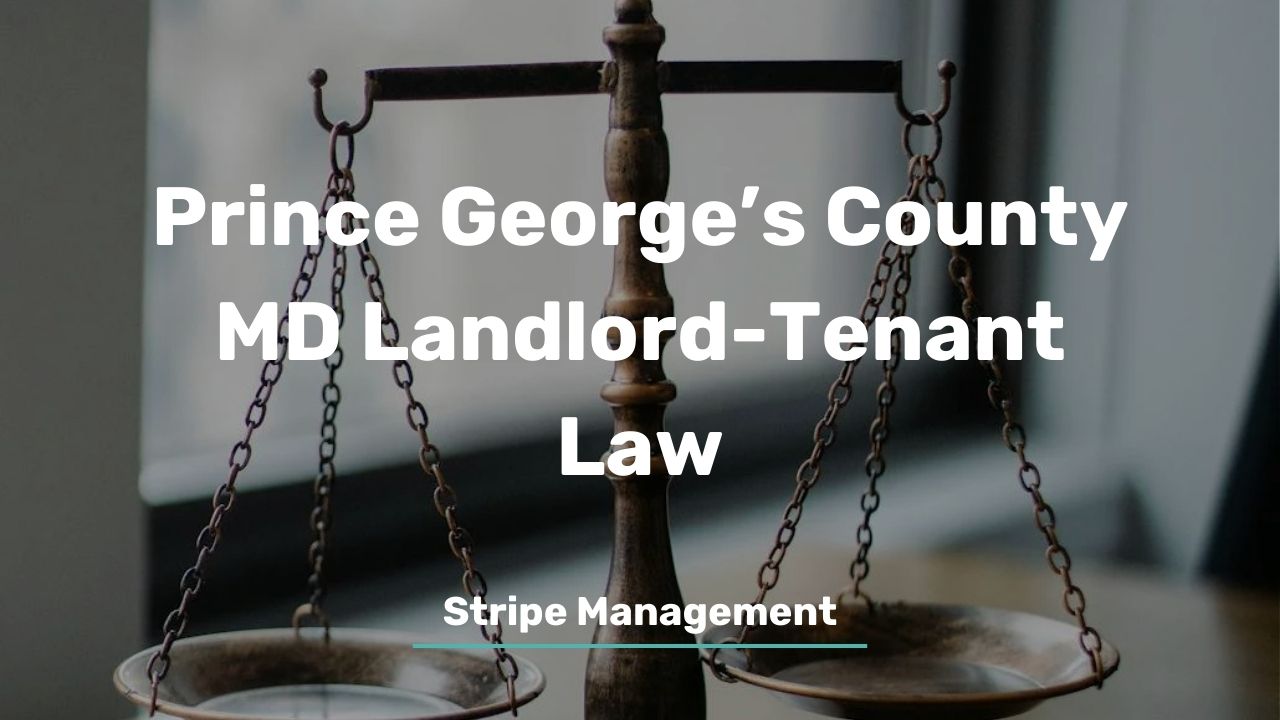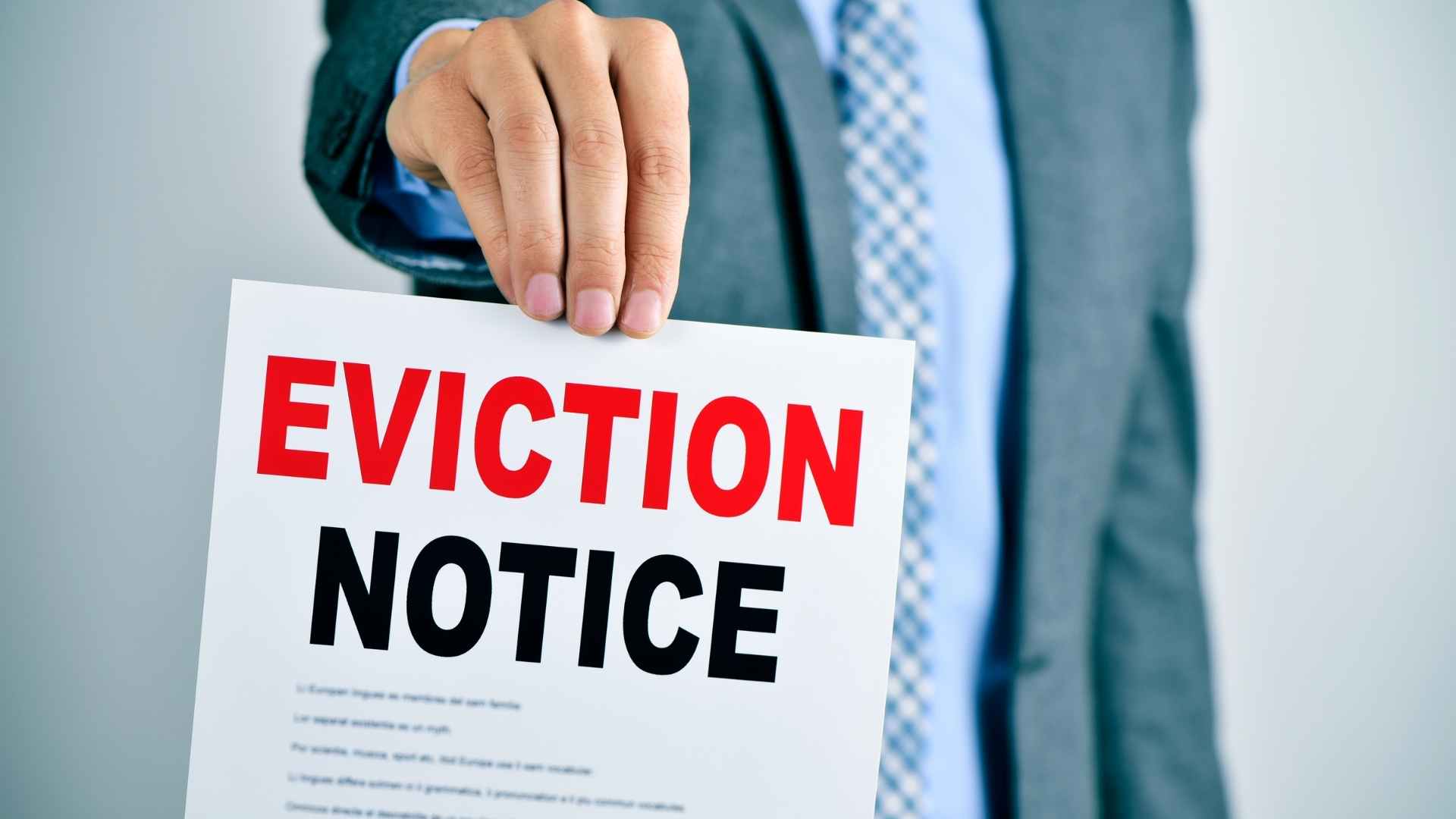 To rent out your Maryland rental property successfully, you must familiarize yourself with Title 8 of Maryland Statutes.
To rent out your Maryland rental property successfully, you must familiarize yourself with Title 8 of Maryland Statutes.
This will help you know what you can and cannot do with it comes to all the facets of landlording in Prince George’s County and surrounding areas. The following are the important basics of the Maryland landlord-tenant laws.
Required Landlord Disclosures in Maryland
Tenants in Maryland have the right to the following information before moving into a rental property:
- Information about lead-based concentrations if renting out a property built before 1978.
- The contact information of the individual acting as the property manager.
- A security deposit receipt, showing important info such as the tenant’s right to attend the move-in inspection.
- Utility sharing arrangements if they are due to the landlord.
- The unit’s habitability condition.
Tenant Rights and Responsibilities in Maryland
A tenant who has a rental agreement (verbal or written) obtains the following rights under the MD landlord-tenant laws. A right to:
- Be provided with the aforementioned disclosures before the lease or rental agreement becomes effective.
- Live in privacy.
- Fair treatment as per the Maryland fair housing laws.
- A proper notification before a rent increment.
- Break the lease early for reasons such as active military duty or domestic violence.
- A proper eviction process.
- Have requested repairs made within a “reasonable “time after properly notifying the landlord.
- Live in a unit that is up to code in terms of health, safety, and structural integrity.

Maryland landlord-tenant law requires tenants to do the following during the term of their lease:
- Keep the unit clean, sanitary, and habitable.
- Use the provided appliances and facilities clean and sanitary.
- Use the property only for its intended purposes.
- Make small repairs and maintenance.
- Not cause disturbance to the peace and quiet enjoyment of other tenants or neighbors.
- Abide by all terms of the lease agreement, including payment of rent and utilities.
Landlord Rights and Responsibilities in Maryland
Title 8 of Maryland Real Property Codes grants landlords the following rights. A right to:
- Remove a tenant who does not abide by the terms of the lease.
- Require all new tenants who lease the property to pay a security deposit.
- Terminate a periodic tenancy, such as a month-to-month agreement, with proper notification.
- Raise rent by any amount and as often as you please.
- Enter a tenant’s rented premises for certain allowable actions, such as inspecting the unit or responding to repair requests from the tenant.
As for the responsibilities, they include the following:
- Give the tenant certain disclosures before they can agree to move in.
- Provide an advance notice before entry, unless you’re accessing the property to respond to an emergency.
- Treat tenants fairly and equally as per the Maryland fair housing laws.
- Abide by the local rent increase laws (if any).
- Make a reasonable effort to re-let a vacant unit that a tenant vacated for a legally unjustified reason.
- Notify the tenant before terminating their periodic tenancy.
- Abide by the Maryland security deposit laws in its collection and handling.
- Not retaliate against a tenant for exercising a legal right, such as joining a tenants’ union.
- A proper eviction exercise.

An Overview of the Maryland Landlord-Tenant Law
1. Warranty of Habitability
In Maryland, landlords are required by law to provide a rental dwelling units that meet the state’s basic habitability standards. They must, among other things, have the following:
- Heating during the cold months.
- Hot and cold running water.
- Working smoke and carbon monoxide detectors.
- Functional electrical and plumbing systems.
You must also make any requested repairs within 30 days of getting notified. If you fail to do so, the tenant may obtain a right to exercise any of the following options:
- Sue for the costs.
- Obtain a court order that forces you to make the repairs.
- Withhold part of the rent.
2. Tenant Evictions in Maryland
You can evict a tenant in Maryland if they don’t abide by the terms of the lease agreement. The eviction must follow the state’s judicious process lest it fails. The following are some of the things to keep in mind for a successful eviction process:
- Have a valid reason for the eviction, such as failure to pay rent or utility bills.
- Serve the tenant proper notice, and deliver it through the correct procedures.
- Follow the fair housing laws, which prohibit discrimination based on race, color, religion, or other characteristics.
- Obtain a court order before attempting to physically remove the tenant from any rental units.

If not exactly sure of the process to follow, please hire expert property management services. They will save you time, stress, and costs. If a landlord fails to follow the eviction process, they may face legal consequences.
3. Security Deposits Rules
You must handle a tenant’s security deposit in a particular manner. The following are a few things to note in this regard:
- The maximum amount to ask must not exceed the equivalent of one month’s rent.
- You must hold the tenant’s deposit in an interest-bearing account.
- Any withholdings must be reasonable and appropriate. Common reasons for security deposit deductions include failing to pay rent and damage exceeding normal wear and tear.
- You must return the deposit, minus any allowable deductions, within 45 days after the tenant moves out.
4. Rent Increase Rules
Like some other landlord-friendly states, Maryland doesn’t have rent control laws at the state level. There is, however, no state law prohibiting local jurisdictions from creating their own control rules. As such, make sure you do due diligence before raising rent.
Without rent control, landlords can raise the amount by any amount and do so as often as possible. But before doing so, you must notify the tenant beforehand. The amount of notice will depend on the length of the lease. For leases longer than a month, for instance, you must give the tenant a 90 days’ advance notice.
Conclusion
Now you know what you can and cannot do when renting out a property in Maryland. By staying legally compliant, you protect not only yourself, but also your tenants and your investment as well.
For further clarification, please don’t hesitate to get in touch with Stripe Management. We understand all the Maryland landlord-tenant laws and can help you with other property management aspects as well, including property maintenance and tenant screening. Contact us today!
Disclaimer: Please note that the information provided in this blog is intended for general guidance and should not be considered as a replacement for professional legal advice. It is important to be aware that laws pertaining to property management may change, rendering this information outdated by the time you read it.
